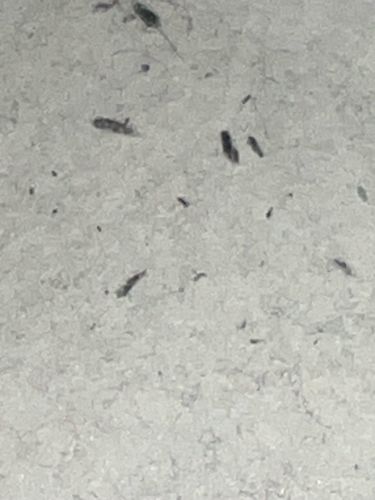Booklouse
Scientific Name: Psocoptera
Order & Family: Psocoptera (Order); various families including Liposcelididae
Size: Typically 1-2 mm, but can range from 0.5 mm to 10 mm

Natural Habitat
Warm, humid, dark environments; often found in books, papers, stored food products, walls, and under wallpaper
Diet & Feeding
Molds, fungi, starch, grains, cereals, paste from bookbindings, wallpaper paste, and other organic debris
Behavior Patterns
Nocturnal; prefer high humidity; often move slowly but can sometimes hop; reproduce quickly; some species are parthenogenetic (reproduce without males)
Risks & Benefits
Generally harmless to humans (do not bite or transmit diseases); can cause damage to books, paper, and stored food products by feeding on mold or the materials themselves; their presence often indicates high humidity and mold growth indoors, which can be a health risk for sensitive individuals.
Identified on: 10/25/2025